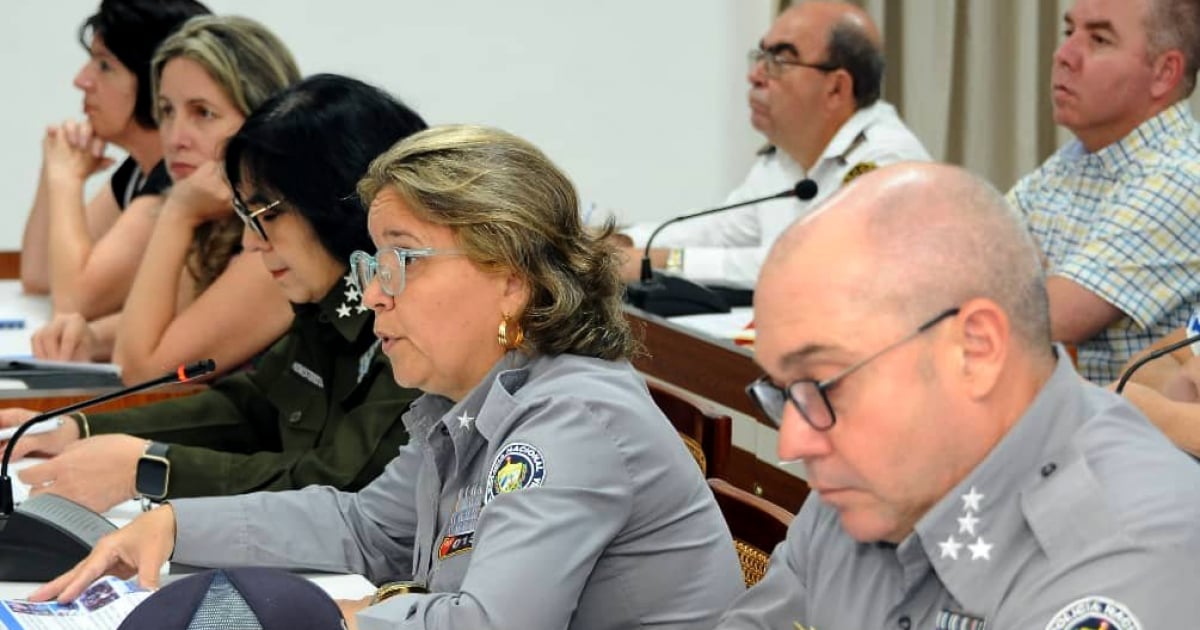The Cuban government has admitted that its "tough-on-crime" policies are not yielding results, and that criminal activities are proliferating across society. This was acknowledged by authorities during the meeting of the working group for the prevention and confrontation of crimes and illegalities, held on Thursday at the Palacio de la Revolución.
Presided over by Prime Minister Manuel Marrero Cruz, the meeting aimed to analyze the outcomes of the "confrontation" in April. According to the website of the Presidency, the head of government pointed out that "no progress is being made in identifying and eliminating the causes and conditions that favor the proliferation of these phenomena."
"Effective administrative confrontation is not being achieved in factories and warehouses where most of these problems originate. Public dissatisfaction persists, indicating that our work is still insufficient. We need to intensify our actions, especially preventive measures," emphasized Marrero Cruz.
Underlying Issues in Crime Prevention Policies
The official report highlighted the deficient strategy underpinning the policy of "confronting crimes and illegalities" promoted by the government of Miguel Díaz-Canel. "Yes, there is confrontation," noted Marrero Cruz, "but crimes and illegalities continue to proliferate instead of diminishing." According to the Prime Minister, this is because the government has not identified the "causes and conditions" that facilitate criminal behavior in the country.
Without understanding the root causes of crime and illegalities, Díaz-Canel's administration fails to act effectively to eradicate these behaviors, which continue despite the state's efforts to pursue and punish them, sometimes even in an "exemplary" manner.
During the meeting, it was also admitted that there are persistent "evasive behaviors that need to be identified and confronted" in tax collection. However, the head of the National Tax Administration Office (ONAT), Mary Blanca Ortega Barredo, reported that as of April, revenue collection has shown growth compared to the same period last year.
In the first four months of 2024, ONAT inspectors conducted around 9,300 fiscal control actions detecting debts amounting to over 336 million pesos. Throughout 2023 and to date, 194 reports of tax evasion have been filed. Several cases have resulted in penalties such as the withdrawal of authorization to operate and temporary or permanent closures of establishments (the official report did not specify the number of such sanctions imposed on evaders).
The impact of inflation on pricing, widespread scarcity, the dollarization of the economy, the consolidation of an informal currency market, growing inequality, increased poverty, and a sense of abandonment and hopelessness among the population—all contribute to the "breeding ground" for criminal behavior among Cubans.
The "causes" are evident: the political system of the Cuban totalitarian regime obstructs reforms and the possibility of much-needed change in a country that, without real human rights or political and civil liberties, is witnessing the rise of a "Russian-style oligarchy" that appropriates national wealth and excludes increasingly larger segments of society, leaving millions of Cubans marginalized, desperate, and relying on their survival skills.
Key Issues in Cuba's Crime Prevention Policies
In light of the Cuban government's recent admission of its failures in combating crime, several questions arise regarding the underlying issues and potential solutions. Here, we address some of the most pressing queries.
Why are the Cuban government's crime prevention policies failing?
The policies are failing because the government has not identified the root causes and conditions that facilitate criminal behavior, leading to ineffective administrative confrontation and persistent public dissatisfaction.
What are the main contributing factors to the rise in criminal activities in Cuba?
The rise in criminal activities can be attributed to inflation, widespread scarcity, the dollarization of the economy, an informal currency market, growing inequality, increased poverty, and a general sense of abandonment and hopelessness among the population.
How is the Cuban government addressing tax evasion?
The government has conducted numerous fiscal control actions and filed reports of tax evasion, resulting in penalties such as the withdrawal of authorization to operate and the closure of establishments.
